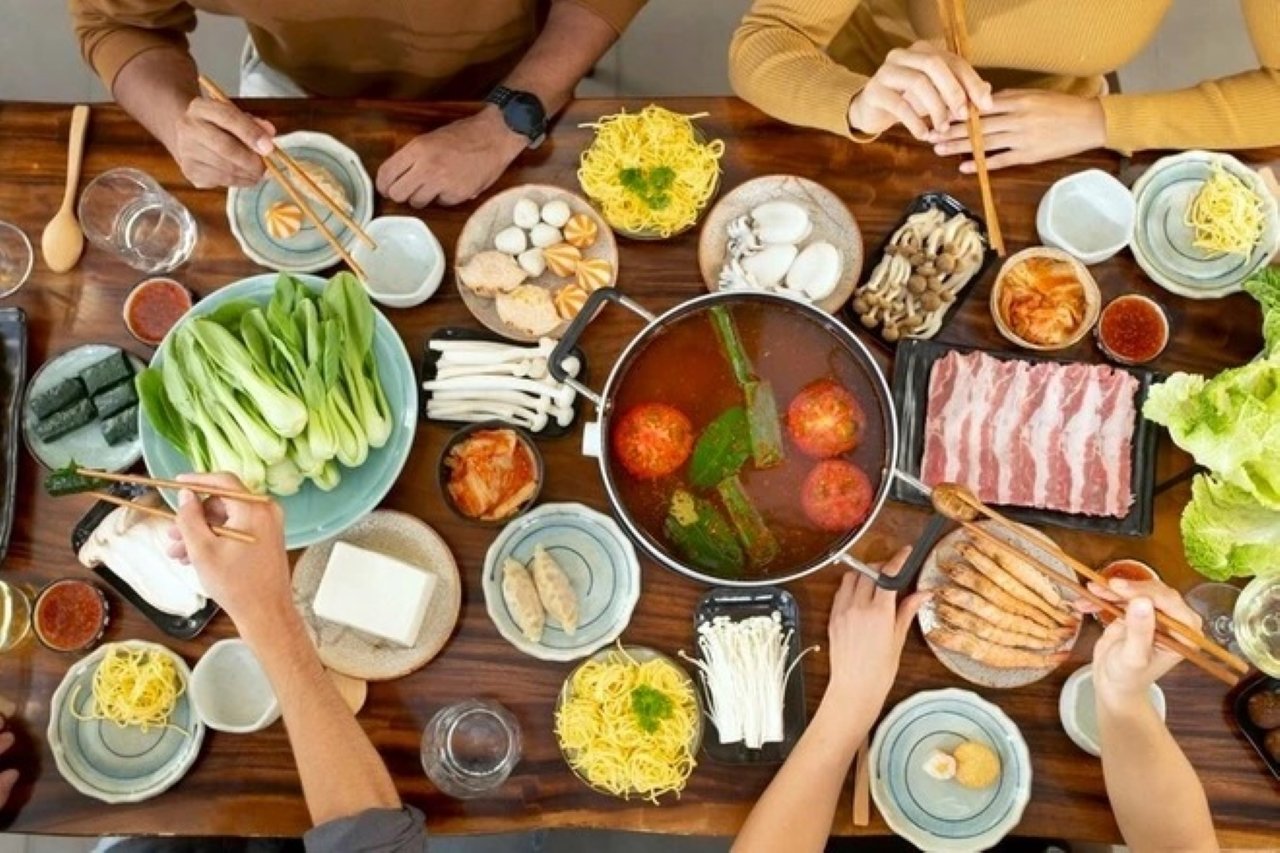While it’s tempting to indulge in hot pot during cold days, certain habits can inadvertently harm your kidneys.
1. Preference for Strong-Flavored Dips:
Hot pot tends to be calorie-dense, loaded with oil, salt, and sugar. Many people also enjoy dipping their meat and fish in strong-flavored sauces, adding to the overall tastiness. However, this practice leads to a high intake of sodium, which is the most detrimental to kidney health.
The recommended guideline for choosing dips is “the thinner, the better, avoiding strong aromas.” For instance, opt for diluted soy sauce, black vinegar, or white vinegar with added garlic, coriander, and finely chopped onions.

5 Hot Pot Habits That Are Unhealthy and Harmful to Your Kidneys
2. Overeating:
Statistics show that an all-you-can-eat hot pot meal can lead to a staggering 3,900-calorie intake, equivalent to consuming 14 bowls of white rice. This far exceeds the recommended 700-calorie limit for lunch or dinner for adults.
Additionally, the sodium levels in such a meal can reach up to 6.6g, while the suggested limit is only 2g. The tendency to drink sugary beverages or beer with hot pot further endangers kidney health and increases the risk of gout.
3. Prolonged Eating Duration:
Hot pot meals tend to last two to five times longer than regular meals. The broth continues to boil for at least 30 minutes, heating up various food additives. After 90 minutes of continuous cooking, nitrite levels can increase by almost tenfold. High levels of nitrite can cause acute poisoning, resulting in symptoms like oxygen deficiency and breathlessness.
Moreover, when high concentrations of nitrite enter the body, gut bacteria break them down, forming nitrosamines. These compounds are harmful to the kidneys, cardiovascular system, liver, intestines, and stomach. The combination of nitrosamines and alcohol can exacerbate the damage.
4. Lack of Separation Between Raw and Cooked Foods:
Diarrhea after hot pot meals is common due to the digestive system’s overload from processing excessive spices (oil, salt, sugar). Additionally, unhygienic practices, such as using the same chopsticks for raw and cooked foods, can cause gastrointestinal distress.
Each episode of diarrhea or stomach flu not only damages the digestive system but also stresses the kidneys, which are responsible for regulating water and electrolyte balance.
Despite feeling full, some people insist on ending their hot pot meal with a bowl of noodles or vermicelli in the remaining broth. Aside from the excessive calorie intake, slurping up the seasoned broth also burdens the kidneys with the task of processing additional salt and other spices.














